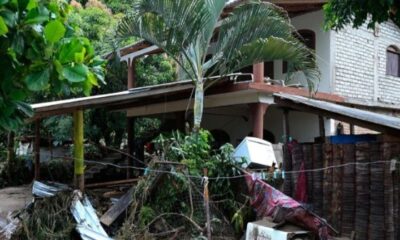Central America
Tropical Storm Lisa moves towards Mexico after lashing Belize
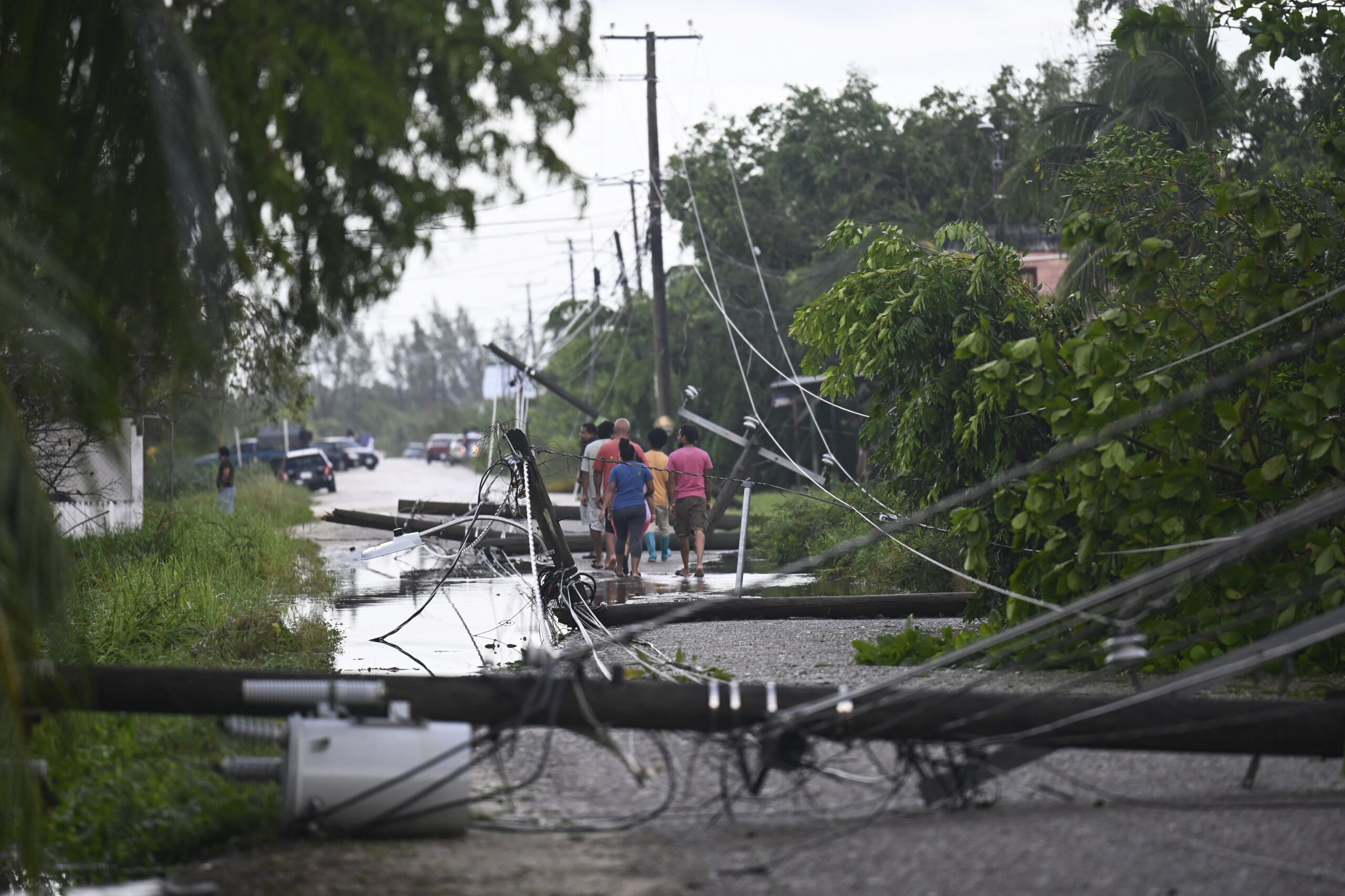
| By AFP |
Tropical Storm Lisa slowed on Thursday after making landfall in Belize, causing flooding and plunging parts of the country into darkness as it churned westwards toward Mexico.
Both Mexico and Belize dropped their coastal tropical storm warnings as the former hurricane weakened and headed west at 10 miles per hour (16 kilometers per hour), according to the US National Hurricane Center (NHC) in Miami.
Forecasters warned that the tourist-popular coast of Central America and the Yucatan Peninsula should continue monitoring the situation as the maximum sustained winds decreased to around 45 mph (75 kph).
For the next day or so, the storm system is expected to pack a gusty punch and deliver heavy rain, swells and flash flooding to northern Guatemala and southeastern Mexico, further weakening as it moves inland.
Lisa slammed into the Sibun River just southwest of economic hub and former capital Belize City around 2120 GMT on Wednesday, uprooting trees, downing power lines and inundating streets.
“It’s very dangerous for us” because in Belize “it floods quickly, even with moderate rain,” Jasmin Ayuso, a 21-year-old secretary, told AFP.
A state of emergency was declared in two areas, while a curfew was in effect until dawn on Thursday.
Some parts of Belize were left without power as the storm lashed the country of about 405,000 people.
“BEL is aware of power outages affecting several areas of the country,” the utility wrote on Facebook. “We assure the public that our teams are taking note of the reports of damages to the power system, including fallen power lines and poles.”
Schools and most businesses were closed in anticipation of the storm and the government set up several shelters.
In Belize City and neighboring areas, local media showed weather-battered buildings, flooded streets and yanked out trees after Lisa landed.
The storm is forecast to be further downgraded to a tropical depression by the end of the day before dissipating over Mexico.
Evacuations in Guatemala
The NHC said Lisa could drop up to 10 inches (250 millimetres) of rain in some areas of Belize, northern Guatemala and several states in southern Mexico.
The Yucatan Peninsula, Honduras’ Bay Islands and other areas of Central America were forecast to receive up to six inches of rain.
In Guatemala, heavy rain caused flooding and landslides in the northernmost department Peten on the border with Belize.
About 143 people were evacuated and 48 remain in a shelter, Oscar Cossio, secretary of the National Coordination for Disaster Reduction (CONRED), told a press conference.
Schools in the north canceled classes.
Lisa arrives not even three weeks after the passage of Julia, another Category 1 hurricane, which caused dozens of deaths in Honduras, Guatemala and El Salvador.
Lisa is the 12th named storm this season, a designation given to systems that produce winds of 39 mph (63 kph) or greater, according to the NHC.
Last year’s active Atlantic hurricane season, which officially runs from June through November, saw 21 named storms.
Central America
U.S. revokes visas of top Costa Rican lawmakers and constitutional judge

The United States government has revoked the visas of Rodrigo Arias, president of Costa Rica’s Legislative Assembly, and Paul Rueda, a justice of the Constitutional Chamber, expanding the list of Costa Rican officials affected by such measures in 2025.
The Constitutional Chamber confirmed the cancellation of Justice Rueda’s visa but stated it would not issue further comments. Meanwhile, local media reported the case of Rodrigo Arias, who has led the Assembly for the past three years and maintained a critical stance toward President Rodrigo Chaves’s administration.
Visa revocations against Costa Rican political figures began following a visit by U.S. Secretary of State Marco Rubio to San José in February. During the trip, Rubio warned of potential sanctions against those collaborating with foreign actors that could pose a risk to U.S. cybersecurity.
While in Costa Rica, Rubio praised President Chaves for halting Chinese companies’ involvement in major tech infrastructure projects, including the development of 5G networks.
Since then, the U.S. has also revoked visas of lawmakers Francisco Nicolás (National Liberation Party), Johana Obando and Cynthia Córdoba (Progressive Liberal Party), as well as Ana Sofía Machuca, general auditor of the Costa Rican Electricity Institute. All were accused of allegedly favoring Chinese firm Huawei in 5G-related tenders—criticism led by President Chaves and members of his cabinet.
In April, even former president and Nobel Peace Prize laureate Óscar Arias, brother of Rodrigo Arias, had his visa revoked. Arias has publicly criticized the U.S. over its military spending and, more recently, the immigration and trade policies of President Donald Trump.
As with previous cases, the U.S. government has not disclosed the specific reasons behind the visa revocations.
Central America
Guatemala hit by over 300 quakes; death toll rises to seven
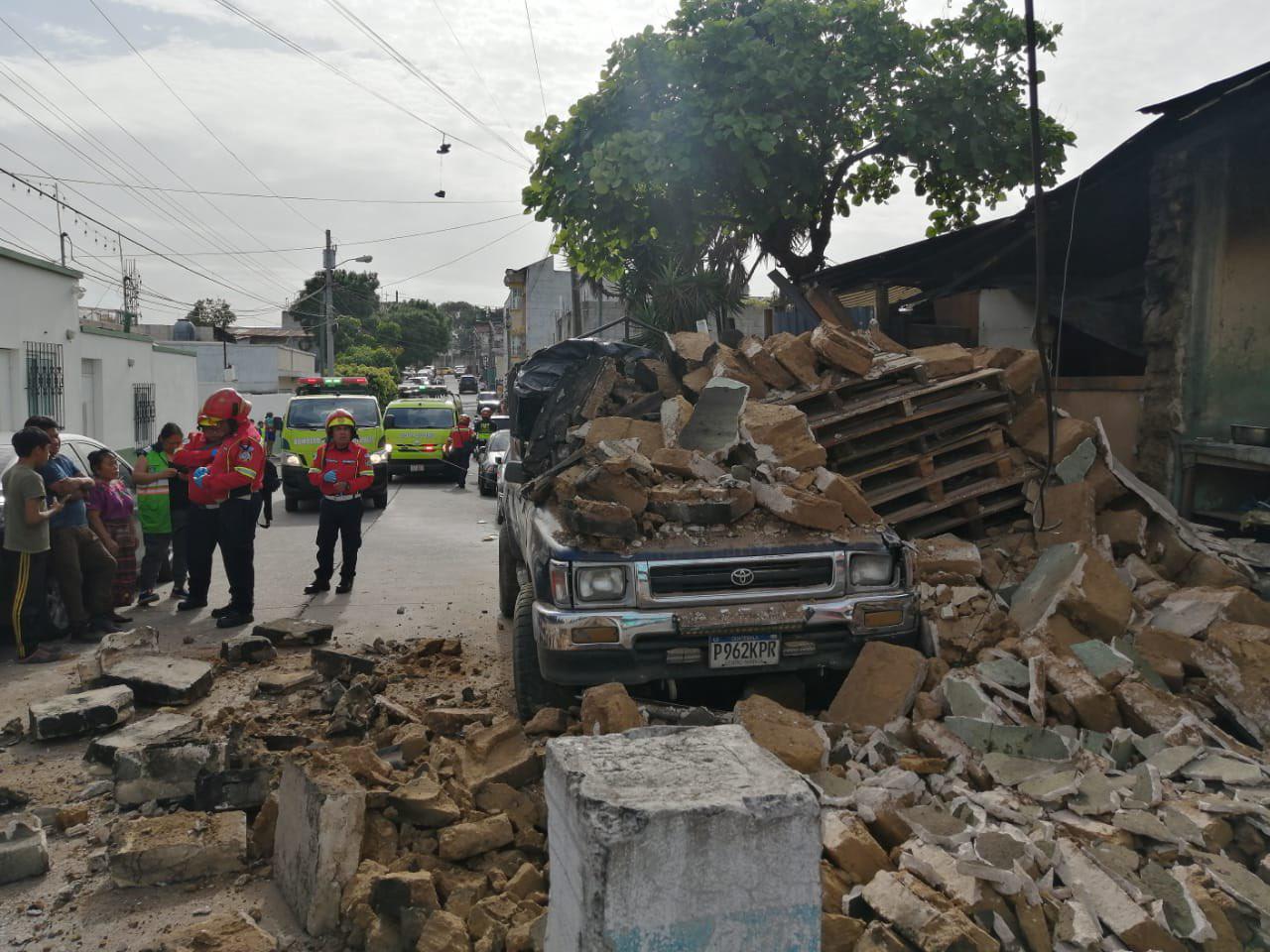
At least seven people have died as a result of a series of earthquakes that have shaken three departments in central Guatemala since Tuesday, according to the National Coordinator for Disaster Reduction (Conred).
In its latest update, Conred reported that 2,138 people have been affected, and 347 have been displaced and are receiving humanitarian assistance.
“Our deepest condolences to the families. There are no words at a time like this, but know that the pain you feel is the pain of the entire Guatemalan people,” said President Bernardo Arévalo, expressing solidarity with the families of the victims. Of the seven deceased, five have been identified, while two remain unidentified as the National Institute of Forensic Sciences (Inacif) continues its work.
To address the emergency, the government has opened nine shelters, currently housing 586 people affected by the tremors.
Since the start of seismic activity, the National Institute for Seismology, Volcanology, Meteorology and Hydrology (Insivumeh) has recorded 340 earthquakes, including 32 in the last few hours, with magnitudes ranging between 1.2 and 5.6.
One of the most severely impacted areas is the Santa María bridge, located at kilometer 39+100 on the road to Palín, Escuintla. Authorities have begun coordinating its repair.
A total of 28 road segments have sustained damage: 11 in Sacatepéquez, 7 in Guatemala, 6 in Chimaltenango, and 4 in Escuintla.
Conred has urged the population to drive cautiously, avoid speeding, take extra care in mountainous areas or on roads with a history of structural issues, and report any emergencies to the 24-hour hotline 119.
Central America
Dengue crisis in Panama: co-circulating serotypes fuel rise in fatal cases

Health authorities in Panama reported on Wednesday that the country has recorded a total of 6,458 dengue cases and 10 related deaths through epidemiological week 25, which spanned from June 15 to 21, 2025.
Of the total reported cases, 576 patients required hospitalization, and 55 cases have been classified as severe, according to a statement released by the Ministry of Health (Minsa).
The metropolitan area and San Miguelito, both in the capital, account for the majority of cases, with 2,753 infections. The reported deaths occurred in the western provinces of Chiriquí (4) and Bocas del Toro (2); the eastern province of Darién (2); and Panamá Este and Coclé, with one death each.
“The national dengue incidence rate during epidemiological week 25 of 2025 is 125.8 cases per 100,000 inhabitants. Most cases have occurred in individuals aged 10 to 59 years,” the official report stated.
Panama is currently experiencing co-circulation of all four dengue serotypes, with DENV-3 and DENV-4 being the most prevalent. This, according to Minsa, “increases the likelihood of severe and fatal cases.”
The Ministry emphasized that dengue is a serious and potentially deadly disease transmitted by the Aedes aegypti mosquito, and noted that it has ramped up nationwide operations through vector control teams to reduce infection rates.
However, officials stressed that citizen participation remains critical, urging the public to eliminate mosquito breeding sites both inside and around their homes.
-
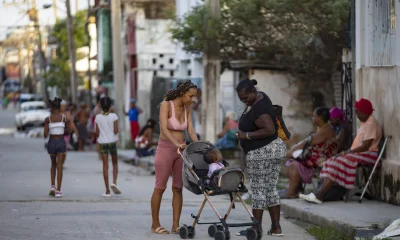
 International3 days ago
International3 days agoCuba confirms 76 femicide cases in 2024, among highest rates in region
-
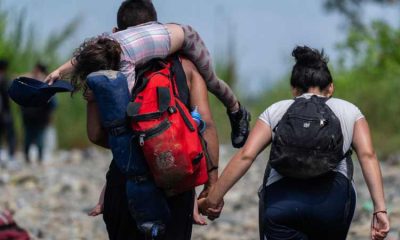
 Central America3 days ago
Central America3 days agoIllegal crossings at U.S.-Mexico border plunge 92% in historic shift
-
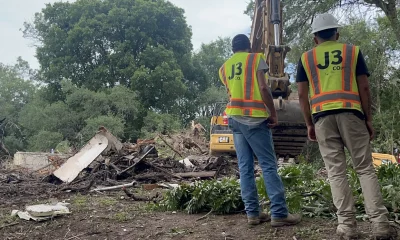
 International3 days ago
International3 days agoU.S. thanks Mexico for sending rescue teams after deadly Texas floods
-
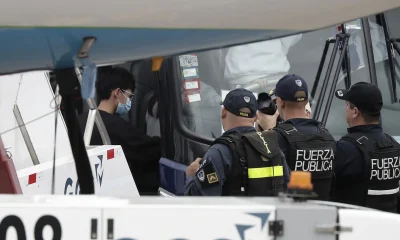
 Central America3 days ago
Central America3 days agoCosta Rica extends humanitarian status and grants work permits to stranded migrants
-
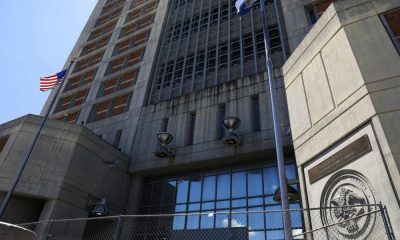
 International4 days ago
International4 days agoDOJ and FBI officially deny Jeffrey Epstein ‘client list’ conspiracy theories
-

 International4 days ago
International4 days agoIranian president says Israel tried to assassinate him, warns U.S. against war
-
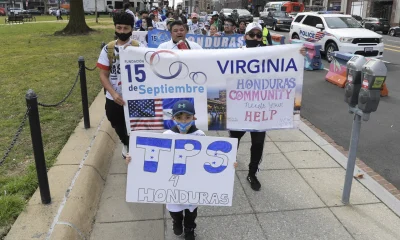
 International4 days ago
International4 days agoHonduras regrets U.S. decision to end TPS for 72,000 hondurans
-

 Central America2 days ago
Central America2 days agoDengue crisis in Panama: co-circulating serotypes fuel rise in fatal cases
-

 International4 days ago
International4 days agoBolsonaro thanks Trump for support amid Brazil coup trial
-

 International4 days ago
International4 days agoSheinbaum urges unity and respect after clashes over gentrification in Mexico City
-

 International3 days ago
International3 days agoMexico launches probe into alleged $25 million bribe to ex-president Peña Nieto
-

 International2 days ago
International2 days agoICE set to become America’s largest security force under Trump’s $75B immigration overhaul
-

 International4 days ago
International4 days agoGunman killed after shooting outside Texas Border Patrol Building
-

 International4 days ago
International4 days agoRussian ex-transport minister found dead after dismissal by Putin
-
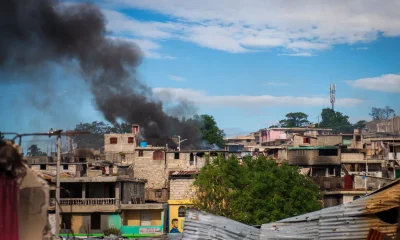
 International4 days ago
International4 days agoTrump ends TPS for haitians as gang violence surges in homeland
-

 International3 days ago
International3 days agoTrump and Bondi slam Epstein inquiry amid Texas flood tragedy
-

 International2 days ago
International2 days agoHarvard faces Federal pressure over immigration docs, autonomy dispute intensifies
-
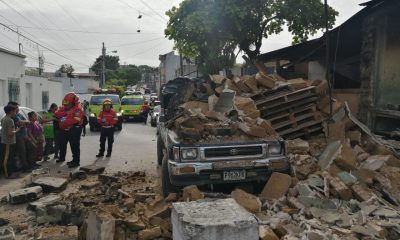
 Central America2 days ago
Central America2 days agoGuatemala hit by over 300 quakes; death toll rises to seven
-

 Central America2 days ago
Central America2 days agoU.S. revokes visas of top Costa Rican lawmakers and constitutional judge
-
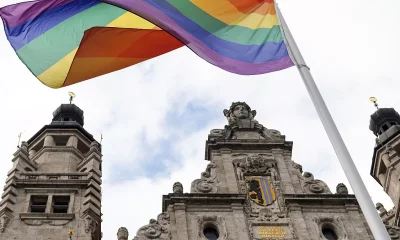
 International2 days ago
International2 days agoGerman parliament orders removal of LGBTQ+ flags amid growing controversy
-

 International2 days ago
International2 days agoFederal judge halts Trump’s order to end birthright citizenship
-

 International2 days ago
International2 days agoUK and France seal innovative migrant exchange deal to curb channel crossings
-

 International15 hours ago
International15 hours agoSheinbaum slams ICE raids after 355 mexicans detained and 67,000 repatriated
-
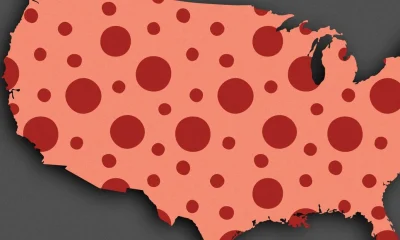
 International2 days ago
International2 days agoCDC reports record measles outbreaks in 39 U.S. jurisdictions this year
-

 International2 days ago
International2 days agoUkraine gains $10 billion in commitments during Rome Recovery Forum
-

 International2 days ago
International2 days agoSix agents penalized for conduct failures in July 2024 attack on Donald Trump
-

 International15 hours ago
International15 hours agoTrump defends Bolsonaro, hints at talks with Brazil after tariff warning
-

 International15 hours ago
International15 hours agoTrump administration begins downsizing ‘bloated’ state department workforce



















